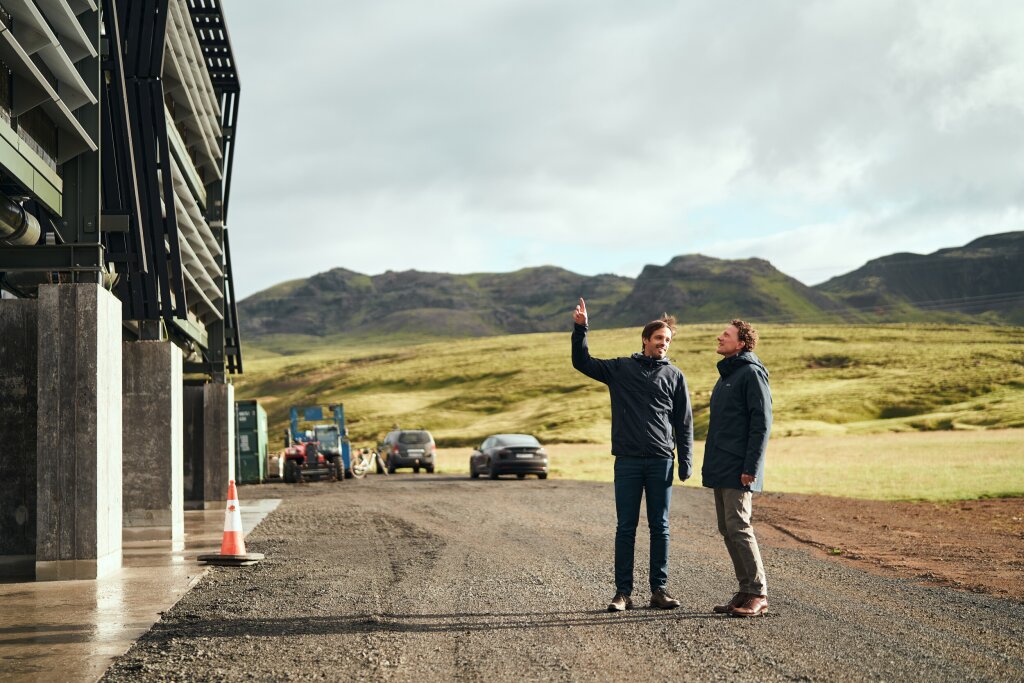There is broad scientific consensus that carbon dioxide removal (CDR) is needed in addition to drastic emissions reductions in order to reach net zero and protect our planet and its inhabitants from the worst effects of climate change. More and more countries and organizations therefore include carbon removal solutions in their long-term climate plans to spur the rapid scale-up needed to reach climate-relevant scales in time: 3-12 gigatons by mid-century. Direct air capture and storage (DAC+S) is considered a key contributor to this portfolio of diverse CDR solutions.
Given this drastic scale-up needed, a key concern is how solutions like DAC can be scaled responsibly to ensure a just and equitable deployment, benefiting surrounding communities. Such responsible deployment of DAC is one of the guiding pillars of Climeworks’ journey to gigaton – learn how.
How Climeworks approaches responsible deployment of DAC
Climeworks was founded on the moral principle that we must do all that we can to prevent the worst effects of global warming, which disproportionately impact disadvantaged communities around the world.
DAC has the potential to be an important and scalable part of the solution to the dual climate and equity challenge. The following principles guide us and how we approach responsible deployment of DAC:
Involving the community
Emissions reductions first
Urgent emissions reductions are an absolute priority. Carbon removal should only be used to neutralize residual and historic emissions, which will be necessary to enable net zero – the more we can reduce now, the less we need to remove. By removing historic emissions, we can address the burden of legacy emissions that frontline communities continue to bear.
Focus DAC on CO₂ removal
Climeworks strongly believes that DAC+S should focus on removing historic and residual emissions to enable global net zero. In line with this, we work with companies with solid climate strategies, most of which with SBTi validated targets, and do not sell CDR to offset fossil fuel or extractive activities. Climeworks does not engage in enhance oil recovery.
Quality
We commit to ensuring our CDR services fulfil stringent quality criteria, including the precise measurement of CO₂ captured and stored, and high durability of storage for thousands of years. Climeworks is the only DAC developer to deliver third-party verified CDR via DAC+S and we will continue to provide high-integrity CDR in all of our projects.
Accounting for all grey emissions
Find out more about direct air capture, how it works and its benefits:
Realizing DAC projects to the benefit of local communities
Involving the local communities is a crucial requirement for any DAC project to come to life anywhere around the world. As part of Climeworks' three DAC Hub proposals that were selected by the U.S. Department of Energy, Climeworks is prioritizing robust community engagement efforts to incorporate input from local communities from the very start and ensure that those communities benefit from the projects. Our efforts in the U.S. build upon the experience we have gained doing stakeholder engagement in Iceland, where Climeworks’ Orca plant, the world’s only commercial DAC+S facility, is located.
From the planning and construction of DAC projects and throughout project operations, Climeworks is committed to ensuring the needs and concerns of the communities are heard and addressed at every step of the process. Alongside project partners, Climeworks has already begun working with community stakeholders in all three potential DAC hub regions as a means of identifying and soliciting feedback from the beginning of potential project buildout.
For each DAC Hub proposal, Climeworks and our partners developed a ‘Community Benefits Plan’ (CBP), which will be refined and put into action in partnership with the host community, to ensure that the projects produce durable benefits that stay in the community. The CBP is based on four core principles:
Achieving two-way communication/engagement
Creating quality jobs
Advancing Diversity, Equity, Inclusion, and Accessibility
Providing tangible benefits to the area, particularly disadvantaged and traditionally underserved communities, in partnership and consultation with those communities)
Each CBP is by nature very specific to the location and context and will ultimately be shaped and conducted with vital input from the community.
Find out more about Project Cypress in Louisiana, where Climeworks works with Battelle and Heirloom to bring CDR via DAC+S to life to the benefit of the local community:
With Climeworks championing the development of the global DAC industry, the company aims at fostering multiple local co-benefits, including fueling new permanent jobs, harnessing a highly skilled workforce and supporting apprenticeships, while further assembling a supply chain around future potential large-scale projects.
That being said, we know there is still lots to learn for us from local communities, and we will share updates along the way.
